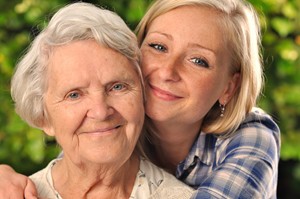Making the decision to move an elderly loved one to assisted living is a delicate situation. While you might think it would be a beneficial environment, he or she may not feel ready to leave home. Although everyone’s situations are different, here are some tell-tale signs that your senior relative should consider transitioning to an assisted living CENTER.
Major red flags
There are a few big-picture signs that it’s time to look into assisted LIVING centers, explains Caring.com. For example, if YOUR senior loved ones (double check please) recently experienced accidents, like falls, or have had a number of close calls, it’s a good idea to assess the situation.If it was truly an accident, like stepping on an icy patch of sidewalk or tripping over a stray book, then they might be able to continue living on their own with increased caution. If the situation occurred in an otherwise safe environment, they may need more supervision and assistance as they age.
When older loved ones have chronic medical conditions that are appearing to worsen, this could also be a good time to review assisted living options. Maybe they don’t have any long-term illnesses but are having unusually difficult times recovering from common colds – this also merits an evaluation of their living situations. Caring.com notes that another major red flag to be aware of is simply how they’re functioning with everyday activities. If your loved ones need help getting dressed, cooking meals and organizing medications, you should probably initiate a conversation about assisted living options.
Financial signs
Managing finances is never a simple task, and as your senior relatives AGE, they may find this responsibility even more cumbersome and confusing than PREVIOUSLY. Grandparents.com explains that many seniors start to neglect household duties as they age, largely due to feeling overwhelmed or simply because they forget to tend to them. If you learn that your senior loved ones aren’t paying their bills, have unopened mail from creditors or banks, or are constantly receiving calls from collectors, use this to steer conversations toward potentially investigating assisted living situations.
Caring.com noted that financial neglect can have more risks for seniors than you may think. For example, unopened piles of mail can create tripping and fire hazards around the house, especially if they are kept near the door or in the kitchen. Additionally, older people are typically targets for financial scams posing as charities. If they’re constantly being contacted by questionable organizations masquerading as honorable causes, they could be convinced to donate large sums of money.

Making the decision to move an elderly loved one to assisted living is a delicate situation. While you might think it would be a beneficial environment, he or she may not feel ready to leave home.
Social factors
A major issue all seniors have to deal with is the shrinking of their social groups. As your loved ones lose friends, they may become increasingly isolated and lonely. When this happens, it’s a good idea to get them into assisted living CENTERS where they’ll be constantly surrounded by people and activities. It can be difficult to determine when social interactions decline if your relatives aren’t forthcoming with this type of information, so it’s important to look for signs of solitude, notes Caring.com.
“Look for signs of solitude.”
For example, if they don’t seem to be making as many plans, or no longer keep a calendar of events, they could benefit from the structure and energy of assisted living. If you have suspicions that your relatives are lonely, pay attention to how many days they go without leaving their homes. If they seem to be spending most of their time by themselves, talk to them about the social benefits of moving. Grandparents.com explains that abandoning hobbies is another tell-tale sign your relatives should reassess their living situations.
Many times, social isolation and driving issues go hand in hand. Once your loved ones aren’t able to safely take their cars out, it can be a fast downward spiral to social isolation. Driving is a significant part of independent living, and a lack of reliable transportation can definitely contribute to senior loneliness.
Personal health reasons
Obviously, major medical issues are often driving factors behind getting loved ones into assisted living centers. Look for subtle health problems, however, as these can quickly add up. For example, if your loved ones are losing weight, they might be ready to move. Pay attention to see if their clothes look loose, and check their refrigerators for food. They may be struggling to cook healthy meals or they might simply be forgetting to eat enough. On the other hand, check your relatives for noticeable weight gain. Caring.com notes that this could be a sign of dementia, since your loved ones could be forgetting they already ate and supplementing meals with snacks.
Grandparents.com notes that you should also be looking to see that your loved ones are practicing good self-care. If they’re not able to bathe themselves, dress themselves or keep up with basic hygiene, they could definitely benefit from the attention they will receive at assisted living centers.
If you found an error, highlight it and press Shift + Enter or click here to inform us.



